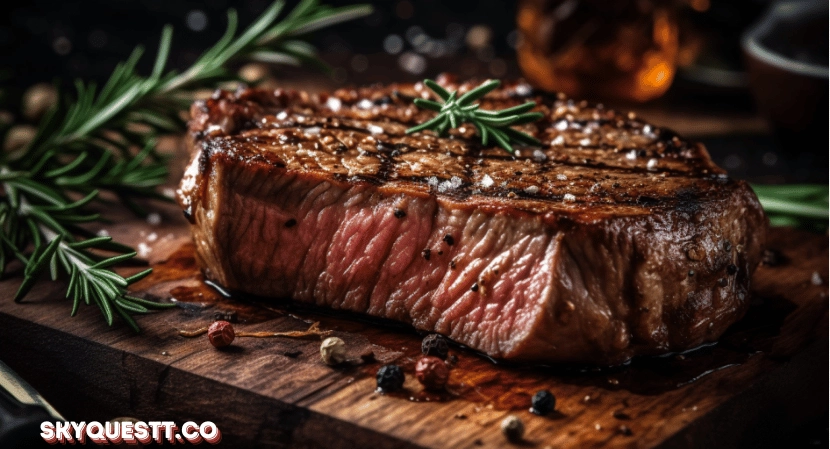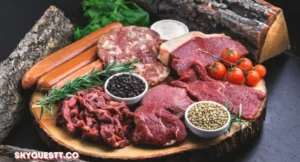
The global meat industry is a significant sector in the food market, providing a wide range of products that cater to diverse consumer needs. From small-scale farms to large-scale meat companies, the industry encompasses a variety of businesses involved in the production, processing, and distribution of meat products. As the demand for high-quality, ethically sourced, and safe meat grows, meat companies and processors play a pivotal role in shaping the way we consume these products. This article explores the meat industry, focusing on leading meat processors, popular meat brands, and the importance of local meat companies in meeting consumer demands.
The Role of Meat Companies in the Industry
Meat companies are the backbone of the meat supply chain, overseeing everything from raising livestock to processing, packaging, and distributing meat products. These companies ensure that the meat reaching your plate is of high quality, safe to consume, and ethically produced. The industry’s success hinges on maintaining safety standards, sustainability practices, and transparency to meet the growing demand for ethically sourced meat.
Larger meat companies like Tyson Foods, JBS, and Cargill dominate the global market. These companies handle massive operations that process millions of pounds of meat annually. They work with various types of meat, including beef, pork, chicken, and lamb, offering a wide range of products under different meat brands. Their scale allows them to meet the demands of large retailers, restaurants, and food service providers, but they are also under scrutiny to maintain sustainable and humane practices.
In contrast, smaller meat companies and independent farms are growing in popularity, particularly with the rise of farm-to-table movements. These smaller companies often focus on local production, grass-fed, organic, or free-range meat, appealing to consumers looking for ethically sourced, high-quality meat. With the increasing interest in local sourcing, many consumers search for “meat processors near me” to find local butchers or meat companies that align with their values.
Meat Processors and Their Importance
Meat processors are an integral part of the supply chain, transforming livestock into consumable products. They play a crucial role in ensuring the quality and safety of the meat through various processes such as slaughtering, cutting, trimming, and packaging. Large meat processors often have their brands or partner with established meat brands to market their products.
For consumers searching for “meat processors near me,” finding a reliable processor is key to obtaining fresh, locally sourced meat. Many local meat processors specialize in providing custom cuts, processing game meat, and offering unique products like smoked or cured meats. Additionally, local processors often focus on transparency and traceability, allowing consumers to know exactly where their meat comes from and how it was produced.
Some well-known meat processors in the industry include:
- Tyson Foods: One of the largest meat processors globally, Tyson Foods offers a wide range of meat products, including beef, pork, and chicken. The company is known for its large-scale operations and distribution capabilities.
- JBS: Another global leader, JBS processes beef, pork, and lamb. They operate in several countries and are responsible for producing a significant portion of the world’s meat supply.
- Cargill: Cargill is a major player in the meat processing industry, offering both beef and turkey products. They are known for their focus on food safety and sustainability practices.
While these large processors dominate the market, smaller processors are gaining popularity due to the growing demand for local, organic, and sustainably produced meat. These smaller operations often provide personalized service, catering to individual consumer preferences and offering a level of quality and transparency that can be difficult to find with larger processors.
Popular Meat Brands
Meat brands are the face of the meat industry, representing the products that consumers see on store shelves. Many meat brands are owned by large meat processors, while others are independent companies that specialize in specific types of meat or production methods. Consumers today are more discerning about the meat brands they choose, often opting for brands that emphasize quality, sustainability, and ethical practices.
Some of the most popular meat brands in the market include:
- Oscar Mayer: Known for its wide range of processed meat products, including hot dogs, bacon, and cold cuts, Oscar Mayer is a household name in the U.S.
- Smithfield Foods: Smithfield is one of the largest pork producers in the world. They are known for their fresh pork products and processed meats like ham and bacon.
- Applegate Farms: Applegate Farms specializes in organic and natural meat products, including hot dogs, bacon, and deli meats. The brand is known for its commitment to sustainable and humane farming practices.
- Tyson: Beyond being a processor, Tyson also markets its meat under its brand name, offering chicken, beef, and pork products that are widely available across the U.S.
With the growing demand for transparency in food production, many consumers are turning to local and organic meat brands. These brands often emphasize ethical farming practices, grass-fed animals, and the absence of hormones or antibiotics in their meat production. Consumers searching for “meat processors near me” often find these smaller, local meat brands appealing for their focus on quality and sustainability.
Advantages of Local Meat Companies
Local meat companies and processors are increasingly favored by consumers looking for fresher, higher-quality, and ethically produced meat. Supporting local meat companies helps to strengthen the local economy, reduces the carbon footprint associated with transporting meat, and fosters greater transparency in the food supply chain. Local processors often work with small farms, providing meat that is traceable, sustainably produced, and free from the industrial-scale practices of larger companies.
Additionally, buying from local processors often results in fresher meat, as the time between slaughter and consumption is reduced. Consumers who prioritize sustainability, animal welfare, and food quality are more likely to support local meat processors and independent meat brands.
Final Thoughts
The meat industry is a vast and complex network of companies, processors, and brands, each playing a critical role in delivering meat products to consumers worldwide. Whether it’s large-scale meat processors handling millions of pounds of meat or local processors providing personalized services, the industry continues to evolve with consumer demand for transparency, sustainability, and ethical sourcing. As consumers search for “meat processors near me” or look for trusted “meat brands,” they are becoming more aware of the importance of supporting companies that align with their values and provide high-quality, ethically produced products.






